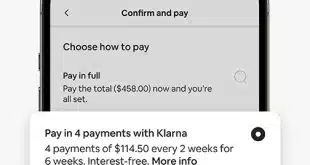According to recent research, American households carried a whopping $17.1 trillion in total debt as of the second quarter of 2023. The herculean effort to become debt-free continues to weigh on the shoulders of millions of Americans.
We’ve seen the landscape of the U.S. workforce change drastically over the past three years, with millions of Americans joining the gig economy in an effort to bring in a second stream of income. Employers are now recognizing and prioritizing financial wellness as an effective way to hire and retain employees and support them in their quest to stay financially solvent.
In the U.S., 78.7 million workers aged 16 and older were paid at hourly rates in 2022, representing 55.6% of all wage and salary recipients, according to the Bureau of Labor Statistics.
With hourly rates fluctuating throughout the country and inflation on the rise, the cost of living and the ability to afford everyday expenses have been compromised. So much so that 48% of hourly workers in the U.S. don’t have a single cent in emergency savings. When unexpected bills such as medical expenses arise, hard-working Americans are left to turn to challenging and expensive options such as payday loans with high interest rates, overdraft fees, or paying late.

Employers are doing their part. They know that the timing of pay can directly impact the ability of an employee to pay a bill or unexpected expense on time. They’re allowing employees to access their pay as they earn it, thanks to advances in financial technology. And they’re offering options that help create a better path to financial stability and wellness for their employees—as opposed to the financial burdens and high-interest fees that can arise with other options.
Today, new digital tools are becoming available to help make payment processes more efficient for both businesses and workers. Companies increasingly are adopting these tools so workers can have fast access to the money they’ve earned— instead of waiting to be paid during the next two-week or monthly pay cycle. These recent innovations in payment technology have put power in the hands of employers to help their employees. This is evident in the rise in popularity for earned wage access.
Leading employers recognize how transformative payment flexibility can actually be. So, hourly workers who work eight hours of their 40-hour work week can have access to those funds immediately after completing their shifts. This liquidity can be a life-saver.
Hourly workers now are empowered to make a financial decision that is best for themselves and their families. Best of all, this new option helps them avoid a high-interest loan or overdraft fees.
However, for positive financial-wellness products such as earned wage access to operate, there must also be innovative solutions to ensure that money moves safely, quickly, and efficiently.

It’s not just gig workers and hourly workers who can face challenges with traditional payment processes and pay cycles. Salaried employees can also find themselves facing financial stress or unexpected bills between regular pay periods. Take, for example, an unexpected home repair or a sudden medical bill. As a result, earned-wage access is gaining ground among companies seeking to provide their employees with fast access to the money they’ve already earned.
Fast payment offerings are helping drive more efficient, seamless, and digital-first ways to access money for businesses and consumers alike. As life happens between pay cycles, bills cannot wait. Expenses cannot wait. With the innovative payment technologies available today, workers can take back control of their finances and pay bills on their own schedule. Everyone wins.
—Jim Filice is vice president, head of money movement, North America, for Visa Direct; Rob Nardelli is director of commercial banking and strategic partnerships at DailyPay.






